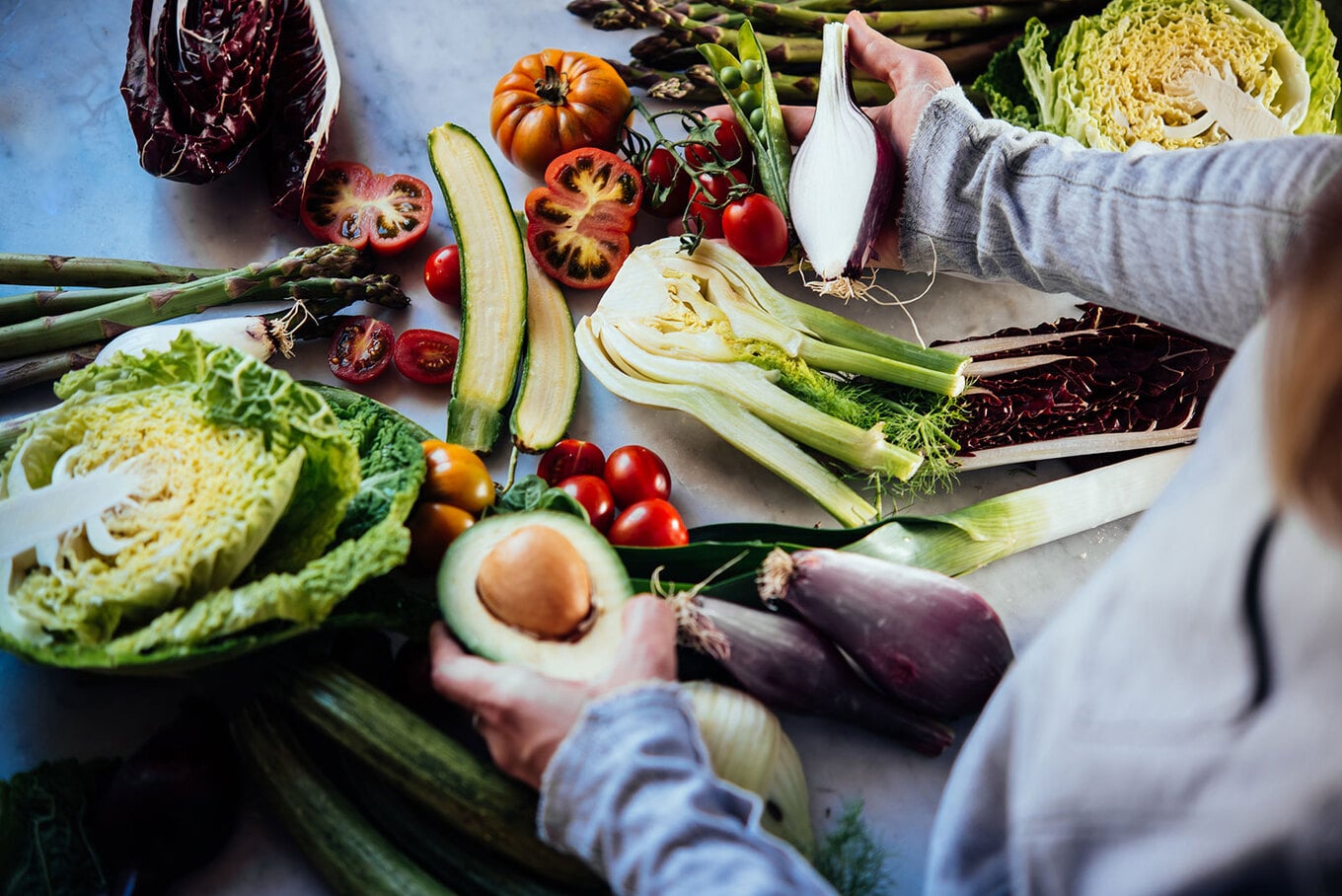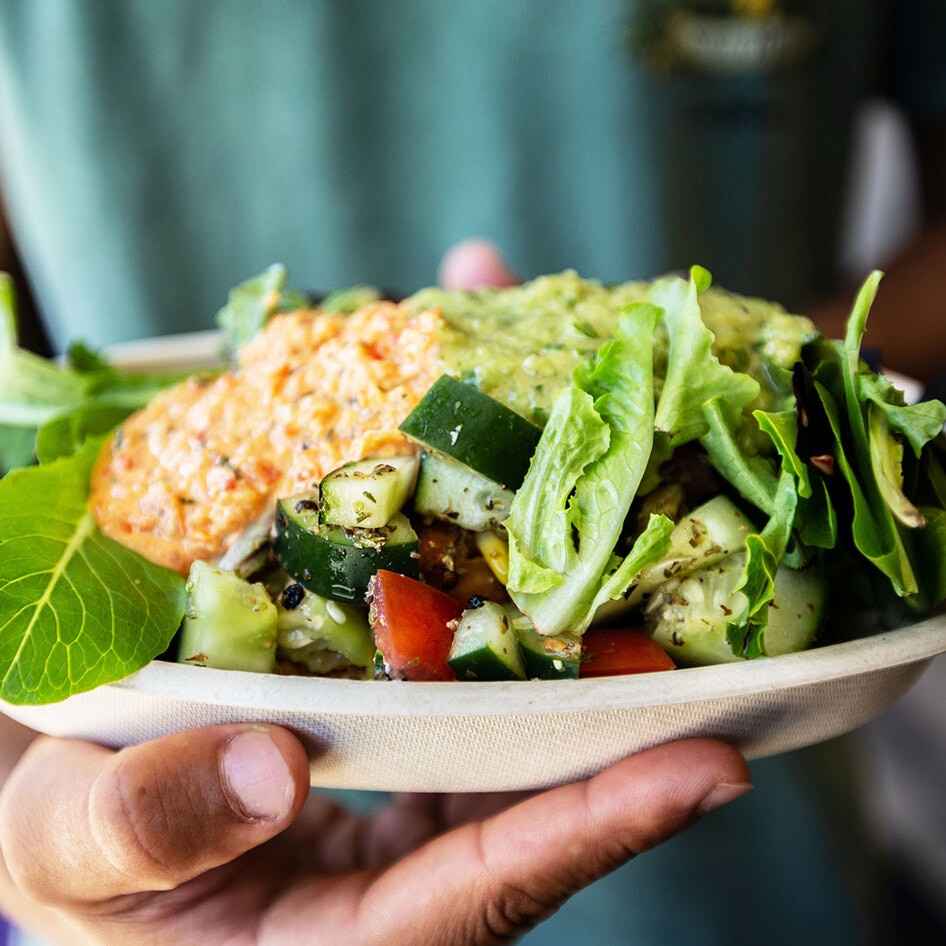Researchers have uncovered a significant association between a predominantly plant-based or vegetarian/vegan diet and a 39-percent reduction in the odds of COVID-19 infection.
The study, published in the journal BMJ Nutrition Prevention & Health, involved 702 adult volunteers recruited between March and July 2022. It aimed to assess the potential impact of dietary patterns on the incidence, severity, and duration of COVID-19.
Participants were categorized into omnivorous and predominantly plant-based dietary groups, with the latter further divided into flexitarians/semi-vegetarians and vegetarians/vegans.
Plant-based foods help boost immunity
Individuals following plant-based diets reported consuming more vegetables, legumes, and nuts while reducing their intake of dairy and meat. Interestingly, there were no significant differences in age, sex, or vaccination uptake between the groups, but a higher number of plant-based participants had postgraduate degrees.
The omnivorous group reported higher rates of medical conditions, lower physical activity, and a higher prevalence of overweight and obesity—factors associated with increased COVID-19 infection risk and more severe symptoms.
 Getty
Getty
Of the total participants, 47 percent reported having had COVID-19 infection. The omnivorous group had a significantly higher incidence of infection (52 percent vs. 40 percent) and were more likely to experience moderate to severe symptoms (18 percent vs. 11 percent).
After adjusting for influential factors such as weight, pre-existing medical conditions, and physical activity levels, there was no overall difference in symptom severity between the groups. However, those following predominantly plant-based or vegetarian diets were 39-percent less likely to become infected than their omnivorous counterparts.
The researchers suggest that plant-based diets may contribute to a boosted immune system and better defense against viral infections due to their richness in antioxidants, phytosterols, and polyphenols.
“Plant-based dietary patterns are rich in antioxidants, phytosterols and polyphenols, which positively affect several cell types implicated in the immune function and exhibit direct antiviral properties,” the researchers write.
In light of these findings, the researchers recommend the adoption of plant-based diets or vegetarian/vegan patterns based on their findings and the existing body of evidence on the potential influence of diet on COVID-19 incidence.
“This research adds to the existing evidence, suggesting that diet may have a role in susceptibility to COVID-19 infection,” Shane McAuliffe, Senior Visiting Academic Associate at NNEdPro Global Institute for Food, Nutrition, and Health, said in a statement.
Plant-based diet reduces COVID symptoms
Recent studies indicate that plant-based diets, rich in fruits and vegetables, may also offer hope to those grappling with the lingering effects of COVID-19. A study published last year found that diet could play a crucial role in managing the symptoms of long COVID-19—a condition characterized by persistent and often debilitating symptoms following a SARS-CoV-2 infection.
The symptoms of long COVID are diverse and can include extreme fatigue, fever, respiratory issues, cognitive impairment often referred to as “brain fog,” headache, and more.
 Adobe
Adobe
The Mediterranean diet, characterized by its richness in plant-based foods, is recommended for individuals with long COVID. This diet is known for its anti-inflammatory and antioxidant properties, making it a powerful tool against diseases associated with long-term, low-level inflammation.
Another study published in the scientific journal BMJ Nutrition Prevention & Health found that individuals who follow a plant-based diet are 73-percent less likely to experience moderate-to-severe COVID-19 symptoms. The study aimed to investigate the association between dietary patterns and COVID-19, including severity of symptoms and duration of illness.
 Nensuria
Nensuria
The study authors explained that these foods supply important vitamins, minerals, and antioxidants that support the immune system and lower the risk of respiratory infections.
“In six countries, plant-based diets or pescatarian diets were associated with lower odds of moderate-to-severe COVID-19. These dietary patterns may be considered for protection against severe COVID-19,” the study concluded.
For the latest vegan news, read:
JUMP TO ... Latest News | Recipes | Guides | Health | Subscribe









